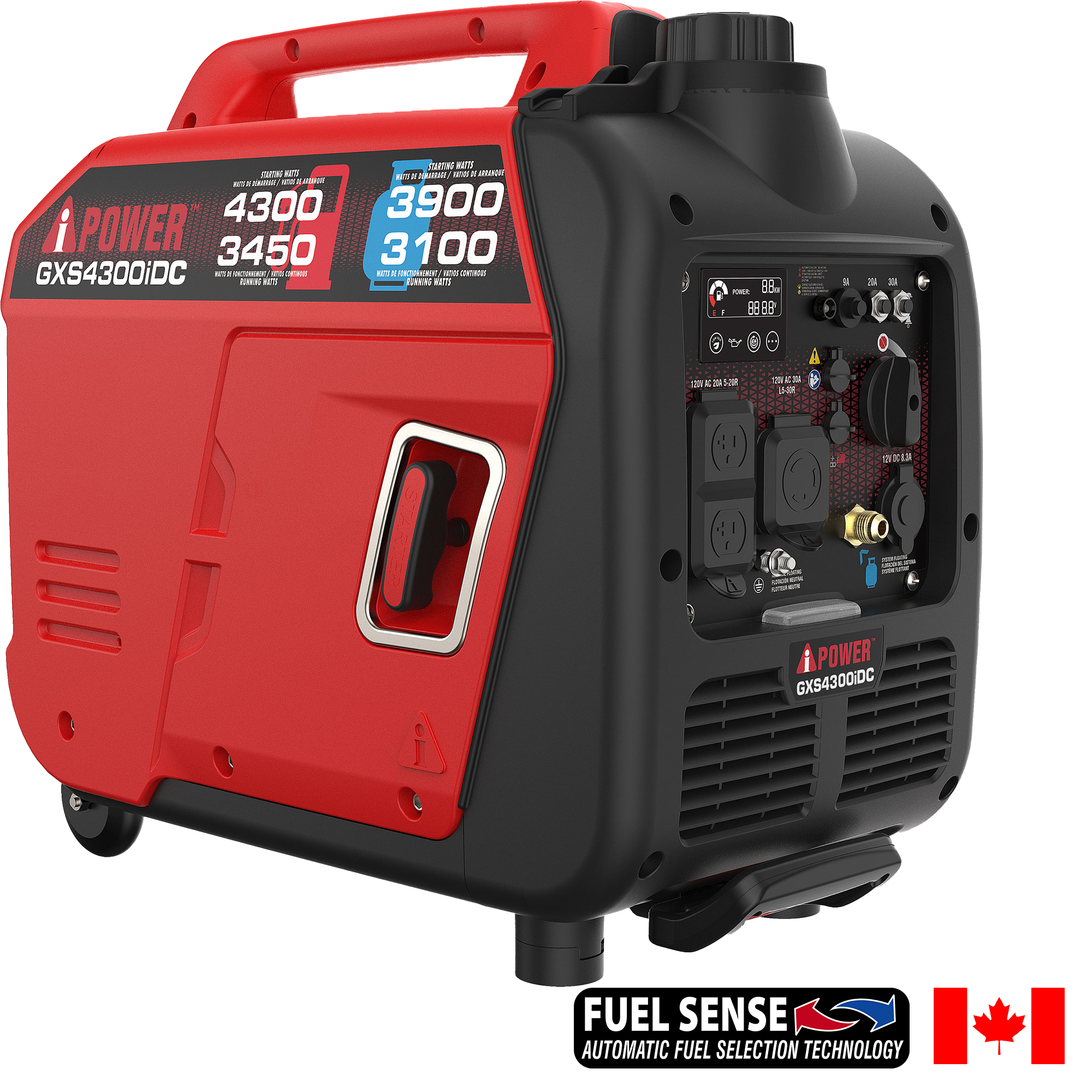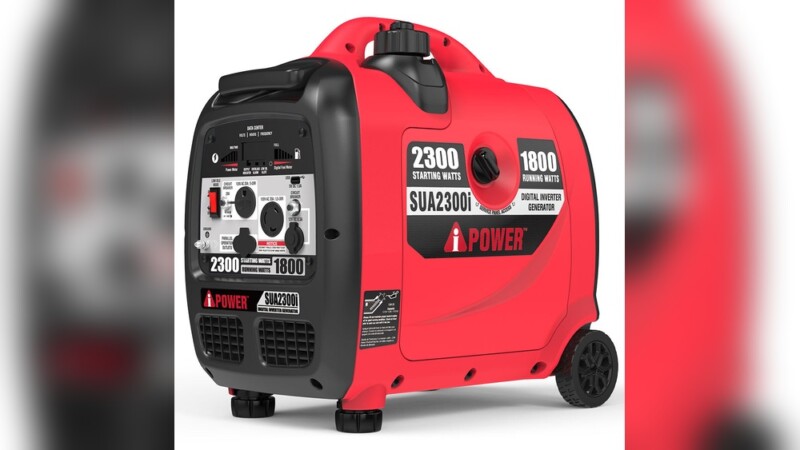When the power goes out or you need electricity on the go, choosing between a power inverter and a generator can be confusing. You want a solution that fits your needs without wasting money or causing frustration.
Should you go for the quiet, fuel-saving inverter that’s perfect for your laptop and phone? Or is a traditional generator better for running heavy appliances during long outages?
Understanding the key differences will help you pick the right option for your lifestyle and protect your devices.
Keep reading to discover which power source matches your needs and how to get the most out of it.
Inverter Generator Features
Inverter generators run very quietly and are easy to carry. Their compact size helps in moving them from place to place. This is great for camping or outdoor events where noise matters.
They use fuel in a smart way by changing engine speed. This saves fuel and lets the generator run longer. It only uses as much power as needed, unlike traditional generators that run full speed all the time.
The power from inverter generators is clean and stable. This protects sensitive electronics like laptops and phones from damage. Traditional generators can cause power spikes that may harm these devices.
Traditional Generator Features
Traditional generators provide high wattage output, making them suitable for heavy power needs. They deliver more power than inverters, which helps run large appliances like air conditioners and pumps.
The initial cost is usually lower than inverter generators. This makes them a budget-friendly choice for many users.
These generators are good for heavy-duty appliances. They can handle devices that need a lot of power to start and run.
Ideal Uses For Inverter Generators
Camping and outdoor events are perfect for inverter generators. They run quietly, so they do not disturb nature or other campers. Their lightweight and portable design makes them easy to carry and set up. They provide enough power for small appliances and lights without wasting fuel.
Inverter generators deliver clean and stable electricity. This is ideal for powering sensitive electronics like laptops, smartphones, and cameras. These devices work safely without risk of damage from power spikes or drops.
During short-term power outages, inverter generators offer quick and reliable backup power. They can keep essential devices running, such as refrigerators, lights, and medical equipment. Their fuel efficiency helps save money during these times.

Credit: www.tractorsupply.com
Ideal Uses For Traditional Generators
Traditional generators are perfect for longer power outages. They can run for many hours without stopping. This makes them reliable during storms or blackouts.
At job sites and construction, these generators power heavy tools and machines. They handle rough conditions well and provide steady energy for all day work.
They are also good for running large motors and appliances. Items like air conditioners, refrigerators, and pumps need a lot of power. Traditional generators can supply this easily.
Pros And Cons Compared
Inverter generators run quietly and use less fuel. They give clean power that is safe for phones and laptops. Great for camping or short power cuts. They are smaller and easier to carry. But, they cost more to buy.
Traditional generators make more noise and use more fuel. They give strong power for big machines like air conditioners. Better for long outages and heavy jobs. They cost less upfront but are heavier to move.

Credit: a-ipower.com
Choosing Based On Your Needs
Inverter generators suit quiet, fuel-saving power. Perfect for camping or short power outages. They produce clean, stable energy for devices like laptops and phones. Their variable speed makes them more efficient. Portable and easy to carry.
Traditional generators offer more power for a lower price. Best for heavy-duty use like running a whole house or job site.
They handle large motors well but can be noisy and less fuel-efficient. Produce power that might harm sensitive electronics.
| Feature | Inverter Generator | Traditional Generator |
|---|---|---|
| Best For | Camping, RVs, outdoor events Powering sensitive electronics (laptops, phones) Shorter power outages Quieter operation |
Heavy-duty appliances (AC, well pumps) Job sites Longer power outages |
| Pros | Quieter operation More fuel-efficient (variable speed) Cleaner, more stable power for electronics More portable |
Lower upfront cost Higher wattage output for the price Better for starting large motors |
| Cons | Higher initial cost | Noisier Less fuel-efficient (runs at full speed) Can produce “dirty” power harmful to electronics |
Cost Considerations
The upfront investment for power inverters is usually higher than generators. Inverters have advanced technology that costs more. Generators are simpler and cheaper to buy.
Fuel consumption affects long-term savings. Inverters use fuel more efficiently. They adjust their speed based on power needs. This saves fuel and money over time. Generators run at full speed always. They use more fuel, which costs more in the long run.
Noise Levels And Environmental Impact
Power inverters are much quieter than generators. They produce less noise, making them better for residential areas.
This quietness helps avoid disturbing neighbors or family members. Generators often run at full speed and can be very loud. This noise can be a problem in places where peace is important.
In terms of emissions, power inverters are cleaner. They use fuel more efficiently by adjusting engine speed to the power needed. This means they release fewer harmful gases. Generators burn fuel at a constant rate, which can waste fuel and increase pollution.
Fuel efficiency also favors inverters. They use less fuel for the same amount of power. This saves money and reduces environmental harm. Generators consume more fuel, which means more pollution and higher costs.

Credit: wenproducts.com
Frequently Asked Questions
Is A Power Inverter Better Than A Generator?
A power inverter suits quiet, fuel-efficient use for sensitive electronics and short outages. Generators deliver more power, ideal for heavy-duty, long outages at a lower cost. Choose based on your power needs and noise tolerance.
What Are The Disadvantages Of Inverter Generators?
Inverter generators cost more upfront and may provide less power for heavy-duty needs. They can also be complex to repair and have limited fuel capacity.
How Big Of A Generator Does It Take To Run A 2000 Foot House?
A 2000 sq. Ft. house typically needs a 7,000 to 10,000-watt generator. This supports essential appliances and HVAC systems efficiently.
Will A 5000 Watt Inverter Generator Run A House?
A 5000 watt inverter generator can power essential household appliances during outages. It may not support entire homes with heavy loads like central AC. Prioritize critical devices to avoid overload and ensure stable performance.
Conclusion
Choosing between a power inverter and a generator depends on your needs.
Inverters suit quiet, light power uses and sensitive devices. Generators handle heavy loads and long outages better. Think about where and how you will use the power source.
Consider noise, fuel use, and cost before deciding. Both have strengths for different situations.
Pick the one that fits your lifestyle and budget best. This helps ensure reliable power when you need it most.

